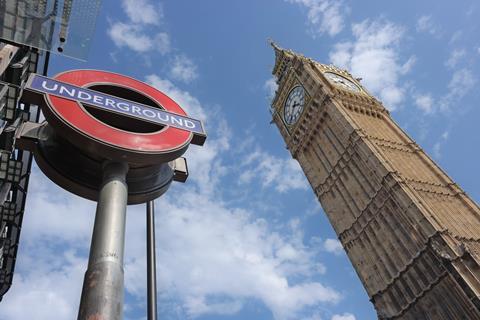
UK: Deeper devolution deals for Greater Manchester and the West Midlands and confirmation that the route for the Bedford – Cambridge section of East West Rail will be announced during May were included in the Spring Budget presented by Chancellor Jeremy Hunt on March 15, but the rail industry has responded with disappointment to the absence of overt references to the sector.
The budget documents said the government will confirm the Bedford – Cambridge route and provide £15m capacity funding to support local authorities in developing plans for economic growth around the new stations.
The devolution deals will provide the Greater Manchester and West Midlands combined authorities with additional policy levers to deliver on their priorities including local transport. This will include single multi-year funding settlements at the next Spending Review, and a greater role in simplifying and integrating transport ticketing.
The government’s ambition is to roll this model out to all areas in England with a devolution deal and directly elected leader.
Responses
Responding to the budget, Railway Industry Association CEO Darren Caplan said ’there were some potentially positive announcements which could mean good news for RIA members. For example, on tax changes, incentives for innovation and levelling up — including funding for 12 new Investment Zones, a second round of City Region Sustainable Transport Settlements and more money for Levelling Up Partnerships’.
However, it was ‘disappointing’ that the budget was ‘silent on providing investment certainty and transparency in rail, whether track, train, retail or any other element of the supply chain. And we are still anticipating the Rail Network Enhancements Pipeline, which remains unpublished almost three and a half years since a government commitment was made to report annually.’
Rail Partners CEO Andy Bagnall said ‘freezing fuel duty for the 13th consecutive year, set against a 5·9% increase in rail fares earlier this month, has the unintended consequence of making a low carbon form of transport relatively less attractive. Government needs to look holistically at how it supports different transport modes to encourage people to make greener choices to get from A to B.’
TSSA trade union Interim President, Marios Alexandrou said the budget had ‘a gaping black hole where transport policy should be’, with the Chancellor ’unable to offer a single word about the future of public transport’. Alexandrou said ’there can be no long-term sustainable growth for our regional and national economies without proper investment in HS2 and our railways more widely as the greenest means of mass transport’.
Chris Richards, Director of Policy at the Institution of Civil Engineers, said ’major financing decisions have been postponed until after the next general election and are therefore subject to change.
‘The UK debate on infrastructure needs a reality check. There is global competition for talent, resources, and know-how. Delaying major programmes like HS2 won’t result in cost reduction. In fact, the UK’s ability to deliver projects effectively may become more difficult as construction firms shift their focus to other countries.’
Michelle Craven-Faulkner, partner and rail lead at law firm Shoosmiths, said ‘there was no major direct mentions of rail in today’s statement, unless you include references to the extension to the City Region Sustainable Transport Settlements — worth £8·8bn over the next five years. We await further detail on whether, from a rail point of view, these settlements will be in addition to the Integrated Rail Plan settlement or form part of the same, particularly with regards to northern local authorities.’



